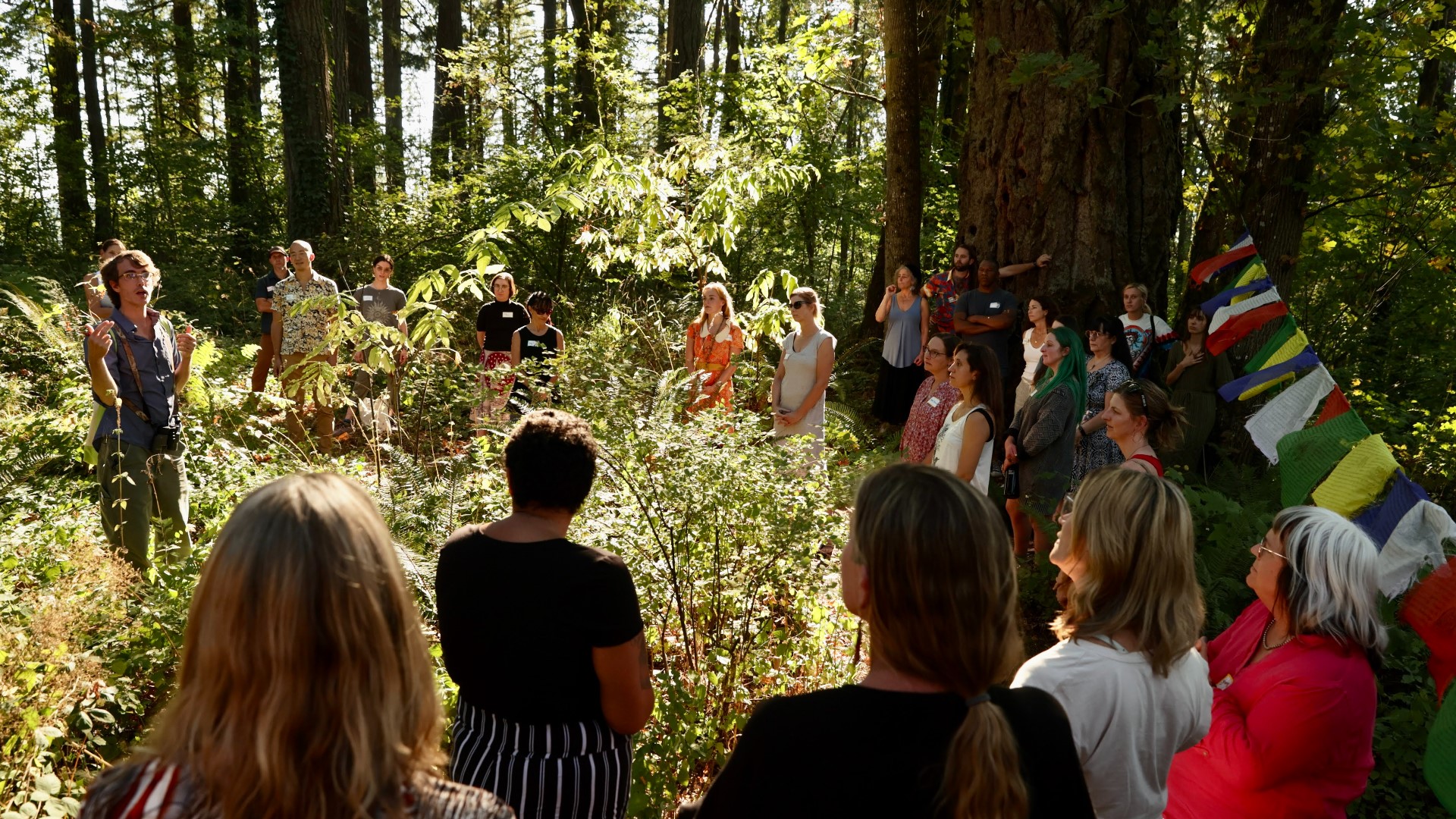PORTLAND, Ore. — For the first time in the United States, Oregon students will graduate this month from a program that will eventually allow them to legally dole out doses of "magic mushrooms."
The graduates explained their hope is to guide clients on journeys toward healing by the end of the year.
In a wooded area on a campus outside Portland, dozens prepared last week to complete a six-month intensive course. It's a necessary step on the path to becoming the first of their kind: licensed psilocybin facilitators.
"It's a special day," said InnerTrek program director Tom Eckert on March 10. "These graduates will be stepping into a brand-new profession here in Oregon that we've laid out through Measure 109."
The weight of all that was clear.
"It's not something that's been done anywhere else in the world so there's going to be lots for us to learn," said graduate Scott Kloos.
"I'm moving forward with an immense amount of humility and also carrying a lot of responsibility, I think, in terms of being the first students out," said graduate Tracy Townsend.
InnerTrek is one of several state-approved psilocybin training programs. As Eckert, the architect and chief petitioner of Measure 109 explained, that includes in-person intensives, online training, home groups and practicum.
"It's really A to Z what it would be to become a facilitator," Eckert said.
Gina Gratza, a licensed therapist, works as a lead educator instructing future facilitators on how to administer the psilocybin. Researchers believe psilocybin can help address anxiety, depression and post-traumatic stress disorder.
"It is so important to understand that this is a little different than the recreational use," she said. "People are coming in intentionally with the purpose of going inward. And that might look like shades and headphones with music. It might be an individual session. It might be a group therapy session. ... This is a different kind of orchestrated experience."
The process doesn't end there. Graduates will take an exam, then apply and pay for a facilitator license.
Angie Allbee, manager of the Psilocybin Services Section, a part of the Oregon Health Authority, explained there are four license types: for businesses producing the mushroom, for labs testing the product, for service centers administering psilocybin, and for the facilitators working with the clients.
"We knew that there would be lots of applications coming in and that there might be some delays, so we do think we're getting closer to licensing," she said. "We have received eight facilitator applications that have been submitted for our review and we can see 118 facilitator applications pending in our system."
InnerTrek graduates Scott and Kathryn Kloos, and Townsend believe it will be worth the wait.
"It's not a miracle, it still takes a lot of work. But there are great successes that are happening in ways that other things aren't working," Scott Kloos said.
"I've healed from my own personal traumas using psilocybin, and it has also helped to wake up creativity and help me think in new ways," Kathryn Kloos said.
"It's not just about the medicine itself, it's about the cultivating the entire experience: the setting, the intention around the experience of journeying with the medicine," Townsend said.

